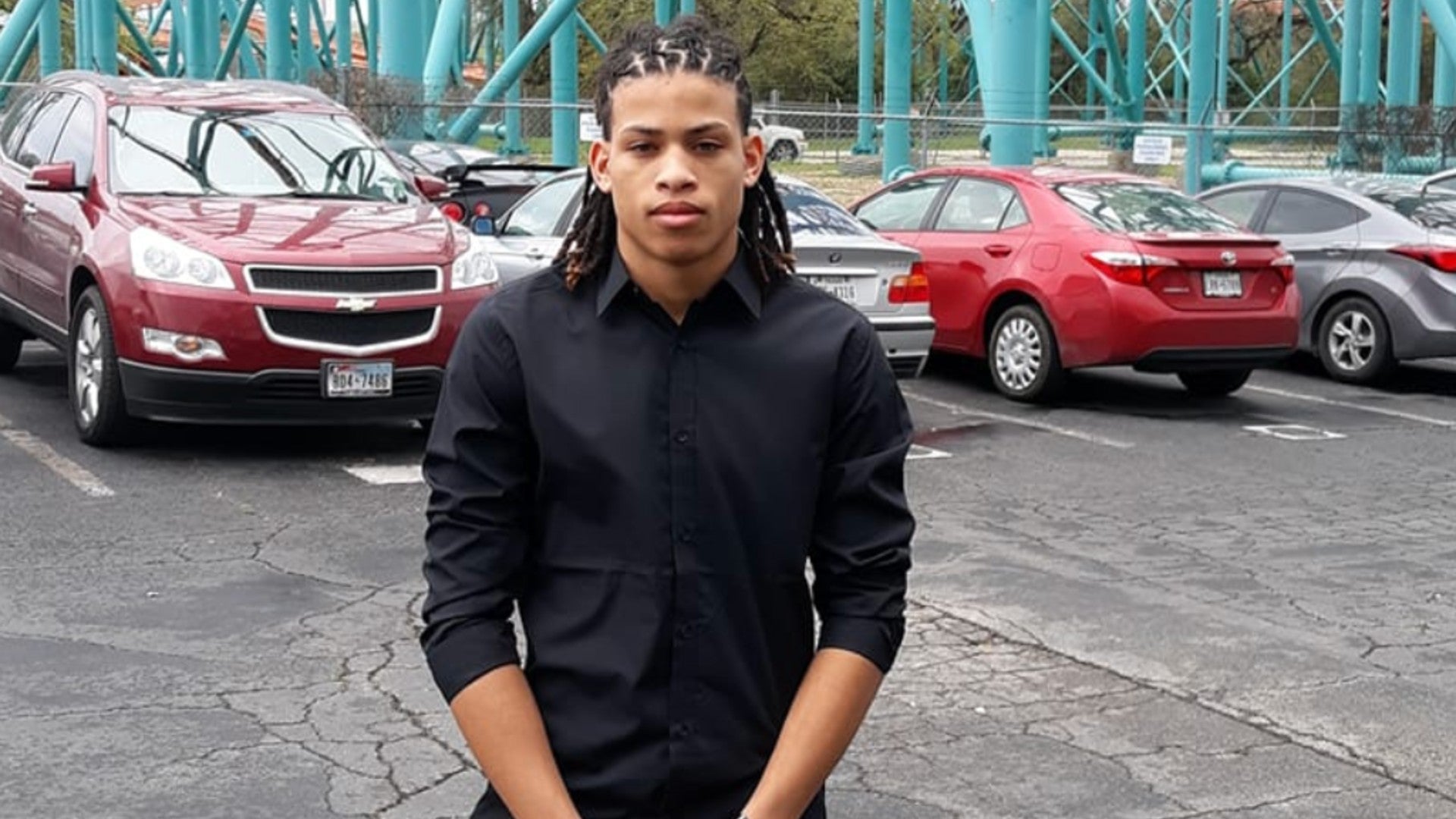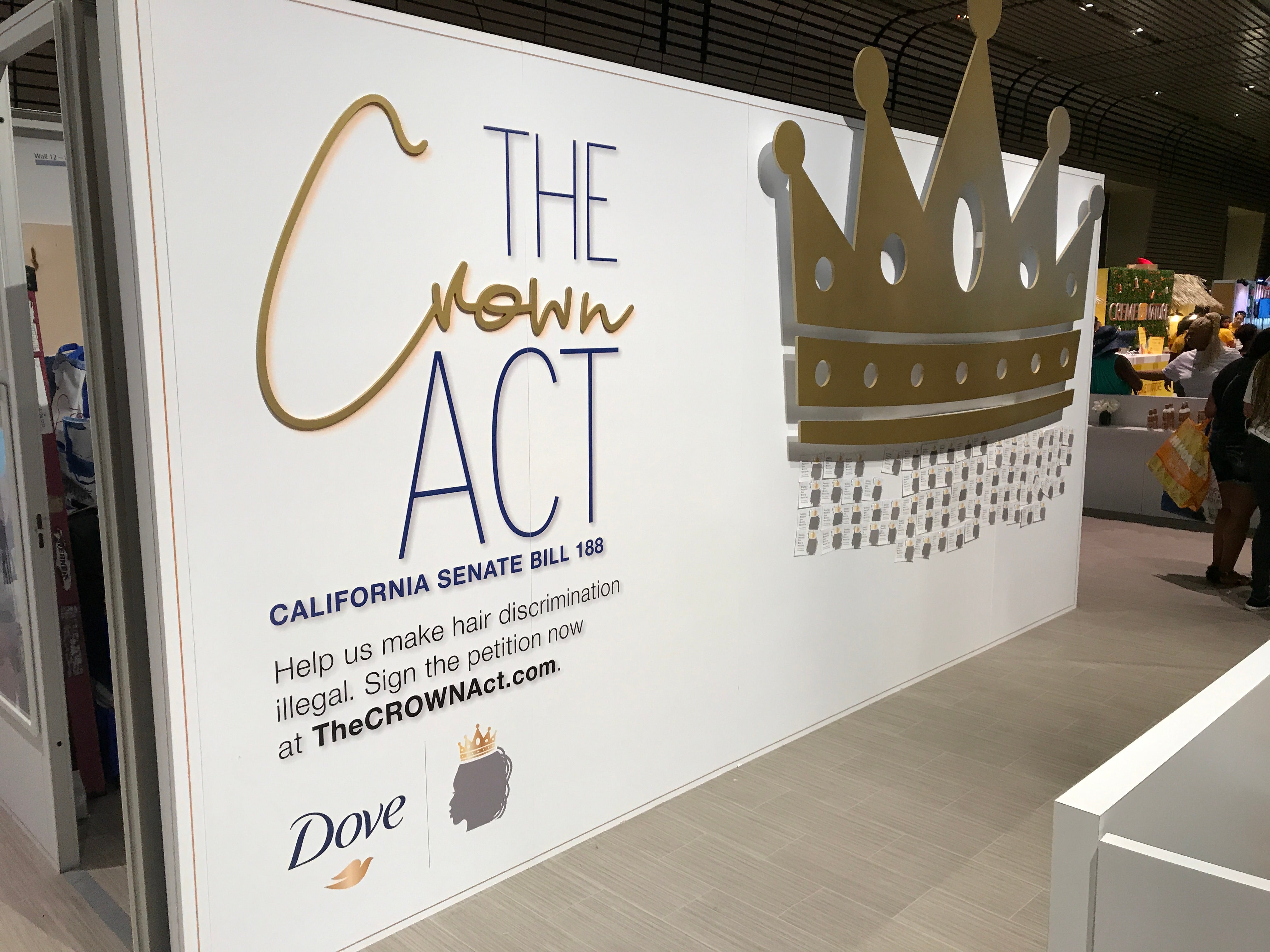
For critics of the Creating a Respectful and Open World for Natural Hair (CROWN) Act, Kerion Washington’s story should be a wake-up call. The Texas teenager has been the subject of praise this past week when an act of discrimination led to an opportunity. The 17-year-old Fort Worth, Texas, native said he was denied a job at Six Flags Over Texas this past spring because of his “extreme” locs.
“They told me I could cut my hair and come back, that it’s just hair and it would grow back,” he told the Dallas Morning News. “I didn’t want to cut it.”
Instead, Washington sought out another job. And as that door closed, another one opened. After his mother Karis Washington’s post about the incident went viral on Facebook, the teen was contacted by Corrie Caster, head of development for IMG Los Angeles and scout for IMG Worldwide, through Instagram. Now he’s being developed for a modeling career, potentially with the well-known agency.
“I hope he’s successful and able to have a platform to use his voice to talk about things that mean something to him, because he will be put in those positions,” Caster said. “I truly believe this story has to be told, and has to be told over and over again.”
Another teenager, 16-year-old Kobe Pierce, had been denied a job at the same Six Flags earlier this year, too. Pierce said that he was told that if he didn’t agree to cut his long single braid, he wouldn’t be hired.
“There were a few employees that complimented my hair before the interview,” the teenager told WFAA Channel 8. “[Then] they pulled me aside at the end of it and said you would have to cut your hair or we can’t hire you at Six Flags.”
Pierce said he decided to speak up after seeing Washington’s story on social media.
Back in 2012 MarKeese Warner started a petition on change.org calling for an end to discriminatory hair policies that target Black people, when she was denied a food service summer job with the Six Flags in Maryland. In her essay she says she had been going to the amusement park with her family for years and even had season passes. The engineering major was looking for a summer job before her senior year at Pennsylvania State University.
“We spend way too much money at places like Six Flags Theme Parks for them to discriminate against any members of our community. Let us also exercise our voice with our dollars. There is no excuse in 2012 for such abhorrent employment policies,” she wrote. Her petition closed with more than 36,000 supporters.
Two years before in 2010, afro.com reported that a group called Friends for Hair Freedom started a petition to boycott the park after two women claimed being discriminated against for their hair when they had been denied employment at the same Maryland location. The cofounders, Marci Walker and Renee Profit, said that Six Flags’ policies disproportionately target Black people. One of the women denied employment, Jackie Sherrill, contacted the ACLU about the incident and the organization agreed to file a lawsuit on her behalf.
And in 2006 NPR reported a story that several Black employees at Six Flags in Maryland complained after they were told that their hairstyles were inappropriate. While the ACLU was investigating the complaints, NPR spoke with Terry Pranther, then general manager at Six Flags Largo in Maryland.
“We’ve had some intense training at this particular property to make sure that everyone on the management team—full-time and seasonal—understands what our standards are and how to apply them, and also how to communicate them more than anything,” he told NPR. “I could not even begin to speak for what may have been said in the past or what was done in the past, but I can tell you that we’re putting every effort possible to make sure people understand what’s expected. And then it’s a matter of choice if they want to work with us and work for us.”
Dallas News reported that since Washington’s story went viral, the company has changed its policy and now allows male team members to wear locs, as long as they are “well-groomed and do not extend past the bottom of the collar.” ESSENCE reached out to representatives from Six Flags about the arbitrary language in the new hair policy and did not receive a response.*
But the larger issue is the classification of locs and other natural Black hairstyles as extreme. Six Flags can change its policy, but it’s one business—a drop in the ocean on a macro level. This is why California’s recently passed CROWN Act is ever so important.

On July 5, Dove, along with Joy Collective, hosted a breakfast at Dooky Chase’s restaurant in New Orleans to toast the passing of the CROWN Act in California and to remind the Essence Festival community that the work is ongoing.
Host Esi Eggleston Bracey, who’s the chief operating officer and executive vice-president of beauty and personal care at Unilever, along with Senator Holly J. Mitchell, who authored the bill and was responsible for bringing it to the California State Assembly, implored attendees to sign a petition that urges legislators to vote yes on the CROWN Act in several other states.
The petition for state legislatures in New York (which is expected to be the next state to move forward with the bill) and New Jersey is currently little more than 2,000 signatures short of the 25,000 signature goal. Residents who do not reside in New York or New Jersey can find their legislators on their website. The CROWN coalition’s goal is to have the legislation sweep the country, making it a federal law that employers cannot discriminate on the basis of hair.
“It’s not over. If you look at my Twitter feed, the governor’s Twitter feed, there are a lot of people who hate us. There are people who have the unmitigated gall to spend their time going on social media to tell us about how they don’t think this is a valuable effort and how the California policymakers should be doing ‘real work.’ Well, this is real work,” said Mitchell.
“We have work to do with broader community to say, ‘It is not about you. It is about my ability to go to work, to go to school and present myself as I deem appropriate. To make a living for myself or get an education,’ ” she continues. “That’s all we’re asking. It’s not too much. And while California was the first [state], it cannot be the last.”
* After this article was published Six Flags responded, confirming that male employees can now wear locs that don’t surpass their collar. They offered no further information.